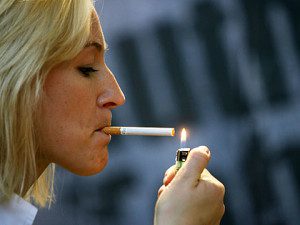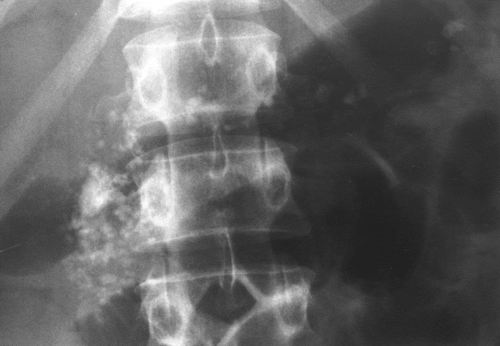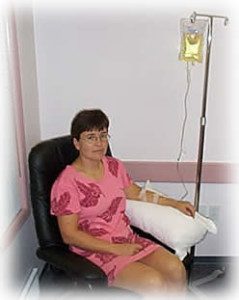 Is it true that smoking increases pancreatic calcification risk?
Is it true that smoking increases pancreatic calcification risk?
According to an article published in the March 2014 issue of Pancreas smoking increases the risk of complications such as pancreatic calcification in those who have chronic pancreatitis. Those of you who smoke and also have chronic pancreatitis may want to quit smoking.
I’ve smoked for years (since I was a kid) but just because I’m an idiot doesn’t mean you should be one too! Knowing that smoking increases your risk of complications should be more than enough incentive to quit smoking. I mean who in their right mind wants a calcified pancreas or pancreatic cancer both of which are associated with chronic pancreatitis and smoking. The combination of smoking with chronic pancreatitis increases your risk of both.
Is It True That Smoking Increases Pancreatic Calcification?
 Pancreatic calcification is usually due to alcoholic and hereditary pancreatitis. You can read more about pancreatic calcification and check out imaging here. Since there are many decent sources of information pertaining to pancreatic calcification I don’t want to go into it here within this post. Rather, I thought I’d share what may be a “fix” if you will and a possible way to clear the calcium deposits from the pancreas. Please understand this …
Pancreatic calcification is usually due to alcoholic and hereditary pancreatitis. You can read more about pancreatic calcification and check out imaging here. Since there are many decent sources of information pertaining to pancreatic calcification I don’t want to go into it here within this post. Rather, I thought I’d share what may be a “fix” if you will and a possible way to clear the calcium deposits from the pancreas. Please understand this …
I HAVE NO CLUE WHETHER WHAT I AM ABOUT TO SAY WILL WORK OR IS EVEN SAFE! I have no science to back my thoughts. They are pure speculation. In fact I’d be more prone to call it a crap shoot. Before we get into the possible fix for pancreatic calcification here is a video about the calcification of the pancreas. And one more thought.
Pancreatic calcification seems to be an unstoppable condition once it starts. As far as I know diet won’t stop it, supplements won’t stop it, once it has gained a foothold. Avoiding alcohol may help, diet may help, supplements may help but nothing seems to stop the progression of calcification.
SOME Doctors Use EDTA To Remove Calcified Arterial Plaque
 For years some doctors have known that EDTA chelates arterial plaque and improves blood flow. It is standard protocol for heavy metal poisoning (lead etc). In the late 1940’s doctors chelated ship painters for lead poisoning. Some of those ship painters had clogged arteries with typical signs of heart disease (chest pain, etc). When chelated with edta many of those ship painters with clogged arteries began to feel better. EDTA was quickly swept under the rug and kept from the public. A cure for heart disease would have cost them BILLIONS!
For years some doctors have known that EDTA chelates arterial plaque and improves blood flow. It is standard protocol for heavy metal poisoning (lead etc). In the late 1940’s doctors chelated ship painters for lead poisoning. Some of those ship painters had clogged arteries with typical signs of heart disease (chest pain, etc). When chelated with edta many of those ship painters with clogged arteries began to feel better. EDTA was quickly swept under the rug and kept from the public. A cure for heart disease would have cost them BILLIONS!
Some doctors started using a protocol of IV chelation to remove artery plaque from their patients who had heart disease. Of course this was met with hard-nosed disapproval from mainstream medicine. Those chelation doctors were ostracized, persecuted, sometimes prosecuted and had their licenses revoked. The cash cow, heart disease, was threatened!
 I have personally talked with people who have used chelation for removing artery plaque. I know one doctor who does it. His patients swear by it. I have heard some great stories. And those patients were either GREAT liars and story tellers or were very grateful because they were almost apostolic, evangelical! Anyway …
I have personally talked with people who have used chelation for removing artery plaque. I know one doctor who does it. His patients swear by it. I have heard some great stories. And those patients were either GREAT liars and story tellers or were very grateful because they were almost apostolic, evangelical! Anyway …
One of the components of arterial plaque is calcium. In fact doctors use a special CT scan to diagnose how much arterial blockage someone may have and it is also known as a coronary calcium scan. If calcium plays such a role in heart disease and some doctors use IV chelation to remove calcified arterial plaque my next question was “I wonder if edta chelation would pull out the calcium from the pancreas?”
Will EDTA Chelation Remove Pancreatic Calcification?
This is the first study that actually shows what patients and chelations doctors have know for some 50 years. EDTA removes plaque and offers benefit. Most every other study done has been financed by drug companies and of course came back with ZERO positive results. Anyway, my thoughts are that chelation with EDTA MAY help dissolve or remove the calcification found in some pancreatitis patients. No guarantees, no scientific research just a passing thought.
IF it were me what I would do is to check around for an ACAM trained chelation physician and ask him/her what he thought in regards to chelation being any benefit for removing the calcium found in pancreatic calcification. One never knows if something may help unless one checks the theory out and if it shows merit, tries it.
Keep in mind that if the medical community HAD to break down and say that chelation with EDTA actually cleaned arteries and improved health, quality of life and more without surgery or drugs that BILLIONS of dollars in revenue would fly out the proverbial window, right? So for them to actually say it helps must have made them choke! And …
I can’t help but wonder whether chelation with EDTA could disolve pancreatic calcification and or stones in the pancreas as well. I’m thinking it could be worth a shot.
Pancreatic Cancer
Pancreatic cancer is something you really do not want. It’s basically a death sentence with average life expectancy measured in months. It doesn’t respond to either chemotherapy or surgery. Yes, some people have had surgery and survived. In others, the cancer comes back! Pancreatic cancer is extremely hard to kill and “The link between chronic pancreatitis and pancreatic cancer is strongest in smokers.” – Cancer.Org
Since I have no business telling others how to quit smoking I thought I’d do it anyway just to help out. 🙂
Your Quit Smoking Plan IS START
 S = Set a quit date.
S = Set a quit date.
Choose a date within the next 2 weeks, so you have enough time to prepare without losing your motivation to quit. If you mainly smoke at work, quit on the weekend, so you have a few days to adjust to the change.
T = Tell family, friends, and co-workers that you plan to quit.
Let your friends and family in on your plan to quit smoking and tell them you need their support and encouragement to stop. Look for a quit buddy who wants to stop smoking as well. You can help each other get through the rough times.
A = Anticipate and plan for the challenges you’ll face while quitting.
Most people who begin smoking again do so within the first 3 months. You can help yourself make it through by preparing ahead for common challenges, such as nicotine withdrawal and cigarette cravings.
R = Remove cigarettes and other tobacco products from your home, car, and work.
Throw away all of your cigarettes (no emergency pack!), lighters, ashtrays, and matches. Wash your clothes and freshen up anything that smells like smoke. Shampoo your car, clean your drapes and carpet, and steam your furniture.
T = Talk to your doctor about getting help to quit.
Your doctor can prescribe medication to help with withdrawal and suggest other alternatives. If you can’t see a doctor, you can get many products over the counter at your local pharmacy or grocery store, including the nicotine patch, nicotine lozenges, and nicotine gum.
Hi HG — I am a healthy – normal weight (according to BMI charts) 40 yo female. A few years ago I was in constant pain from gall bladder disease. I had no stones but my gall bladder was ‘hardening’. They called it ‘Porcelain Gallbladder’. Sometimes, during attacks my Lipase and Amalyse would be elevated, but not to levels that caused hospitalization. It was all a bit of mess for a while. Once I had my gallbladder removed I was a new person. All my pain was gone, I gained back ALL of the weight that I lost over the course of 3 months in pain and I could go back to eating and drinking whatever I wanted with no ill effects. It was amazing to feel like myself again.
However, last month while hiking I fell down a steep hill (I never should have tried to climb in the first place) and damaged the tendons in my knee and cracked the patella. I’m currently undergoing Physiotherapy, and will be seeing a specialist soon to determine the exact amount of damage. During this time I have been given narcotic pain medication so that I can walk a little bit. I have been on these kinds of meds during my GB episodes and during hospitalizaion, but had no side effects (other than becoming drowsy). Now when I take these medications I get the most amazing pain. It is exactly like my GB attacks of the past. MAJOR PAIN. I’m buckled over unable to barely speak. I spoke to my doctor about it and he called it ‘Biliary Dyskinesia’ (?). He said that this would happen if I took the medication orally. Injected or patch-type delivery wouldn’t effect me that way. When I was in the ER after the fall they gave me IV meds and I never felt the way I do at home. I find eating a HUGE meal and then taking the medication helps. From what I’ve read this issue is related to Sphyincter of Oddi and pressure within the pancreatic duct. (?)
Have you ever hear of this? One ER doctor made it sound like the issue was ‘in my head’ and didn’t do any blood work. Could these be little AP attacks? Is damage sustained with every episode of pain?
Hi Susan – sorry to hear you are having difficulty. Narcotic pain meds (opiates) can actually cause acute pancreatitis in some folks. Morphine and prostigmine used to be used to diagnose SOD because the two in combination caused AP in those with SOD. Those are the two drugs MY doc (the only one out of 14 who had a brain) used to help originally diagnose me with acute pancreatitis however … he never mentioned SOD! So THAT may have been my initial cause of AP – who knows? I don’t cuz there are several possibilities. The test was called the Nardi test and for years was the “gold standard” test for diagnosing SOD. Now it isn’t used because supposedly it was inaccurate? Biliary Dyskinesia, when you read about it, sure sounds like SOD doesn’t it? So …
Could your attacks be mild AP? I would say yes, but, I am not a doctor. If it were me I’d try to find a doc who would check it out.Good luck 🙂
Hi! I’m Eddie, a new girl in these circles (yes a girl, well a woman, well to be brutally frank an ancient female of 62 years!) who was diagnosed with CP a month or so ago. The doc said there is no sign of cancer or cancerous activity at the moment. I’m British and now living in the wilds of rural spain where healthcare is free but slow! Still waiting for MRI to determine extent of damage and bloods to see if it’s auto-imune caused. I’ve found your stuff VERY informative and VERY VERY frightening – so I’m determined to do everything I can to take control and give myself the best chance of a healthy retirement!
So, question one is …… I’m a smoker quitting using an electric/electronic cig. Haven’t had a fag for 5 weeks. I have no intention of using it for much longer but wanted to hear your thoughts on these devices. Is the nicotine the danger or the “carrier” ie tobaco/smoke??
Question 2 is ……… Am I going to find that my reaction to various foods will change once I have been prescribed the enzymes?? I don’t want to start on a food diary only to find things change further down the line and I have to go through it all again.
I’m really glad to have found your stuff to help me, there is so much out there that could have you slitting your throat in 5 minutes, but you make me laugh (my favourite medicine) and tell it staight which I really appreciate. Thank you and stay healthy xxx
Hi Eddie 🙂 sorry to hear you’ve joined the pancreatitis hall of pain. I never intended the info to be frightening, just informative. Congrats! on quitting smoking fags. I am guessing you mean cigarettes lol. Anyway my thoughts on electronic cigs are that even though they don’t carry the 3,000+ harmful chemicals found in cigarettes you are still ingesting the addictive chemical nicotine. I’m not sure how that is suppose to help wean you from nicotine addiction but hey whatever works to finally help you quit if that’s your goal. Tobacco smoke and the chemicals it contains is the worst culprit.
Doing the food diary shouldn’t change or be changed by the addition of pancreatic enzymes. The enzymes should only help you digest fats, carbs, sugars and proteins more easily. I hope you are able to heal up nicely and enjoy life again.